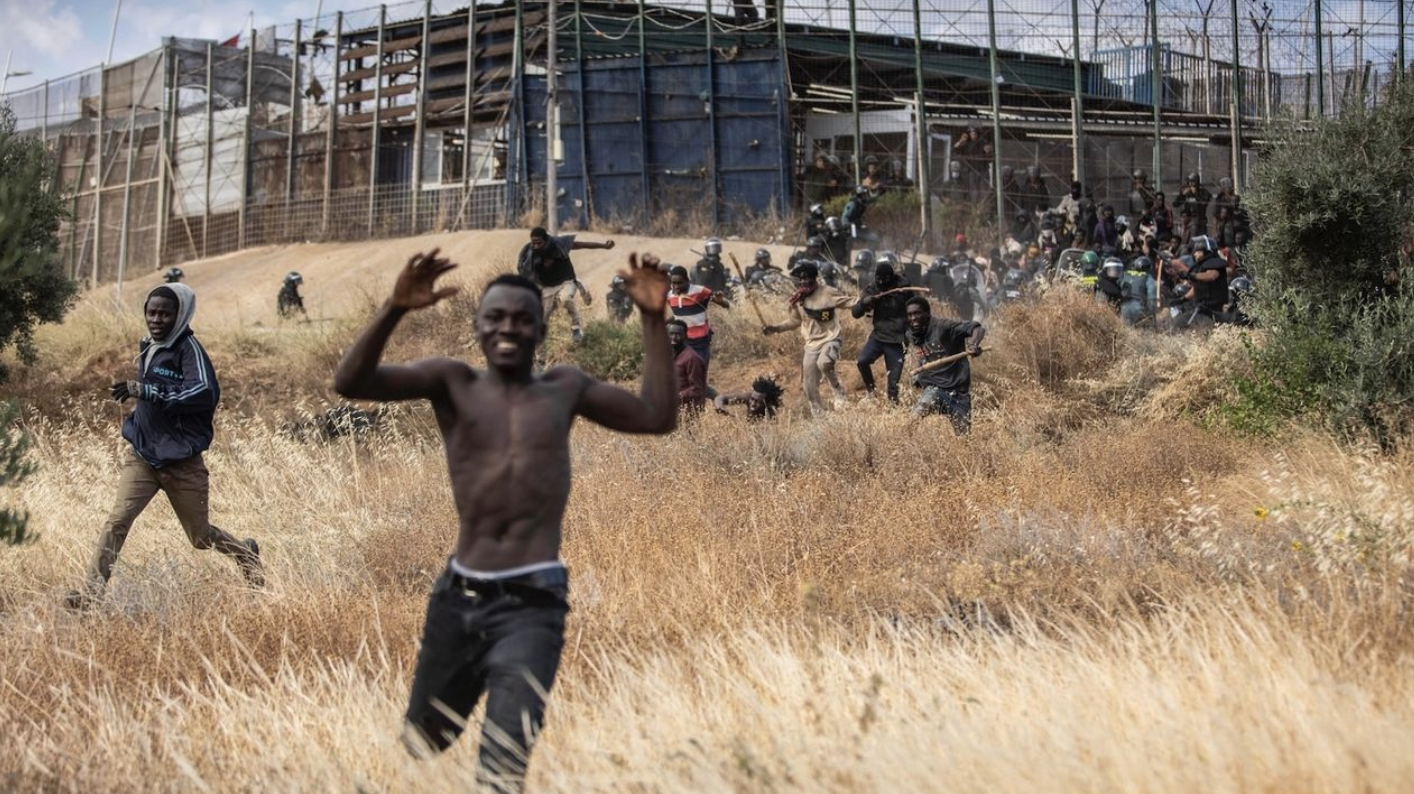Melilla: Disputes over Territory and its Impact on Migration
Source: https://www.wsws.org/asset/32e2e546-e6dc-4d4c-ac28-e5f052a71df7?rendition=image1280
Written by: Rukaiyaa Arssath
Edited by: Amineh Najam-Ud-Din
On the morning of June 24th, the Spanish enclave of Melilla on the Northern coast of Morocco was filled with 2,000 migrants from Sub-Saharan Africa seeking to reach Spanish territory. Unfortunately, others were met by both Spanish and Moroccan authorities, resulting in several wounded and killed in the process. The few migrants who were able to make it into Melilla were put into temporary stay locations until their immigration status was confirmed. While the events that transpired the morning of the aforementioned clash are still unclear, both countries are facing differing responses from the public in regards to the events that have just unfolded.
In Morocco, anger heightens as people are concerned about the treatment these migrants face in the region. While many were wounded in the aftermath of a stampede, it is still unclear how many died from attempting to cross the border or as a result of actions taken by officers at the border. On the other hand, Spain faces a different issue in reference to their neglect of refugees trying to seek asylum from countries like Sudan.
Sadly, these issues are not only limited to Spain and Morocco, but are also highly prevalent across the European Union and other North African regions. Many of these nations seem to be sheltered from dealing with matters revolving around immigration, and thus, have not taken on a lot of the issues surrounding asylum head on. In the case of Morocco and Spain, however, these tensions may also have much to do with the change in relationship between the two countries, resulting in an intense hold over the border.
Many of the issues between Spain and Morocco can be traced back to their relationship in regards to the Western Sahara. Morocco’s claimed authority within the region was not recognized by the United Nations, resulting in many liberties throughout being heavily moderated. However, when the Spanish government chose to alter its stance to adhere to the disagreement on the land and in fact build its relationship with the Moroccan government, it simultaneously sparked controversy with Algeria, mainly in relation to pro-independence movements over the disputed territory. While there seems to be governmental praise given due to the collaborative efforts of both the Moroccan and Spanish forces, the human rights violations that occurred that morning seem to be unheard of amongst their “friendly” relations. As Spain welcomes refugees fleeing from the invasion in Russia, it is apparent the hypocrisy when faced with refugees from a different region, which is in direct violation of international law.
While a full investigation into the deaths at Melilla has been called for, this latest human rights violation further demonstrates the blatant disregard of lives of refugees seeking asylum within the region. Ultimately, while reestablishing relationships among the varying countries is pertinent to lessening tensions at the border, it is also essential to bring to light the violations that occurred that morning and push for an immediate shift in the approach of refugee treatment at the border holistically.

